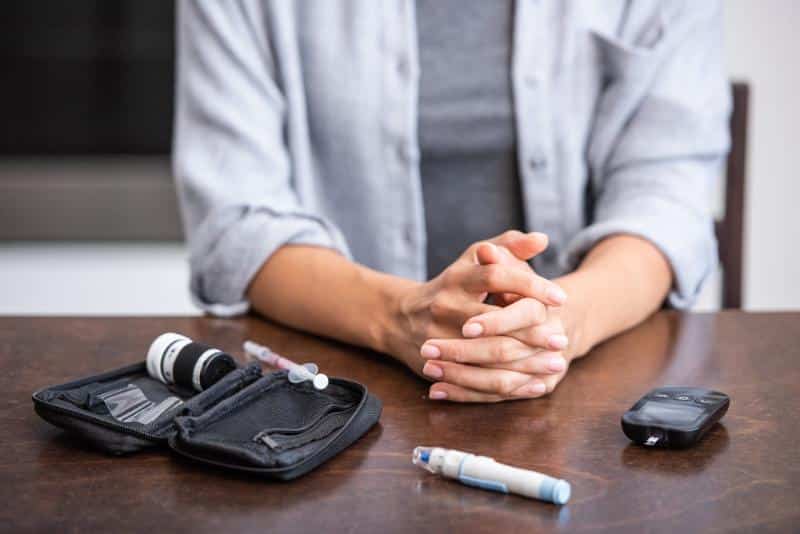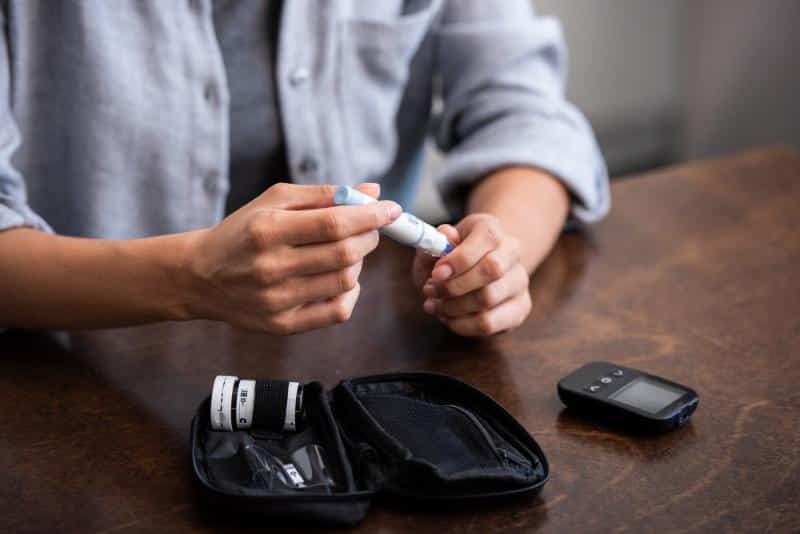If you have diabetes or are on the cusp of potentially developing the disease, knowing your blood sugar levels is crucial for your well-being. Glucose testing is one of the best ways to track your blood sugar levels. In a few seconds, you’ll know if your sugar levels are too high or too low.
A glucose test can also be used in screening for Type 2 diabetes. The test isn’t only for those with Type 1 diabetes. However, there’s more to know about glucose testing, and some of the information can be the difference between enjoying good or poor health.

What are The Different Types of Blood Sugar Tests
There’s more than one type of glucose test. There are actually two types of blood sugar tests commonly used by patients and physicians.
A capillary glucose test is the most common, especially for home testing, which is the type of test where you prick your finger and use a monitoring strip. A drop of blood goes on the test strip, which shows your blood sugar level, usually within a couple of seconds.
The second type is a venous glucose test, and this type of test is more common in an office setting. A phlebotomist draws a small amount of blood from your veins, typically in the arm. Your test is sent to a lab for analysis.
While venous glucose testing is more accurate, due to the time and expense, these tests are not as common as a finger prick.
There is also a third option that is often used for at-home glucose testing. Using a glucometer, individuals can monitor their sugar levels multiple times a day without drawing blood, which is generally only used for patients diagnosed with Type 1 diabetes.
What is Glucose and Why It’s Important
Your body uses glucose (sugar) for energy; it’s your body’s primary fuel source. Your main source of glucose is carbohydrates contained in certain foods and drinks. Think of things like bread, beer, and soda, for example.
Most people can keep their blood glucose levels in a safe range using insulin made by their pancreas. However, sometimes the pancreas produces too much or too little insulin, and this can lead to health problems like Type 1 and Type 2 diabetes.
How Do You Know if You Need a Blood Glucose Test
Your physician can recommend a blood glucose test as part of a standard physical or if you’re exhibiting symptoms of hyperglycemia (high blood sugar) or hypoglycemia (low blood sugar). Some long-term medications, like corticosteroids, can also affect blood sugar levels. While you’re taking the medication, routine glucose tests may be a part of your treatment plan.
If you’re experiencing any of the following symptoms associated with hyperglycemia, a blood test should be part of diagnosing your condition:
- Feeling continuously thirsty (polydipsia)
- Frequent need to urinate (polyuria)
- Constantly feeling fatigued
- Feeling very hungry (polyphagia)
- Unexplained weight loss
- Blurred vision
- Cuts or sores heal slowly
If you develop symptoms like vomiting, are feeling confused, or are having difficulty breathing, contact your physician immediately. You may be showing signs of a life-threatening condition known as diabetes-related ketoacidosis.
You should also request a glucose test if you have the following symptoms associated with hypoglycemia:
- Shaking or trembling
- Sweating and chills
- Dizziness or lightheadedness
- Faster heart rate
- Intense hunger
- Anxiousness or irritability
Sometimes, eating foods high in natural sugar, like apples or bananas, is enough to regulate low blood sugar levels. However, it’s always best to discuss a more permanent treatment plan with your physician. Your treatment plan may include regular glucose testing.

Understanding High Glucose Readings
So, what does it mean when your blood glucose levels are high, around 100 to 125 mg/dL? This can indicate a higher-than-average risk of developing Type 2 diabetes. If your glucose levels are over 125 mg/dL, it can indicate you have a type of diabetes.
What is Type 2 Diabetes? Type 2 diabetes occurs when your pancreas isn’t capable of producing enough insulin. The disease can also occur if your body isn’t using the insulin produced by your pancreas.
High blood sugar levels can also be an indication of Type 1 diabetes. Your blood sugar levels may be as high or higher than 200 mg/dL. Type 1 diabetes typically occurs when your immune system starts attacking the insulin-producing cells found in your pancreas.
While diabetes is the most common cause of high blood glucose levels, it’s not the only one. You can also see your blood sugar levels rise if you are diagnosed with hyperthyroidism, pancreatitis, or Cushing syndrome. Stress from a recent surgery can send blood sugar levels skyrocketing, which is also true with some prescribed medications.
A good tip is to talk to your physician about any possible side effects relating to your medication, including higher-than-average blood sugar levels.
Understanding Low Glucose Readings
When your blood glucose test has a reading of 70 mg/dL or lower, your blood sugar levels are below the norm. Medications and diabetes (both types) can cause blood sugar levels to drop.
Some other medical conditions that affect low blood sugar levels include the following:
- Liver disease
- Kidney disease
- Hypothyroidism
- Addison disease (adrenal insufficiency)
- Alcohol use disorder (AUD)
Insulinoma, an extremely rare tumor, can also interfere with normal blood sugar levels.
What to Do If Your Glucose Levels are Too High or Low
Don’t panic if your blood sugar levels are above or below the normal range, which doesn’t automatically indicate you have a type of diabetes. However, it’s a good indicator it’s time to talk to your physician.
Your physician will probably order another glucose test. This is only to double-check the first test. If you’re fasting or taking medication, which can affect your blood sugar levels.
If the second test has the same results, your physician will diagnose your condition and prescribe an effective treatment plan that will help keep your blood glucose levels in the normal range.
Stay On Top of Your Health with Glucose Testing
Not everyone needs routine glucose testing, but if you’re prone to fluctuating blood sugar levels, it’s a good idea.
After all, keeping your glucose levels in the optimal range can prevent a variety of health problems from developing, like diabetes. Talk to your physician if you’re concerned about your blood glucose levels.
